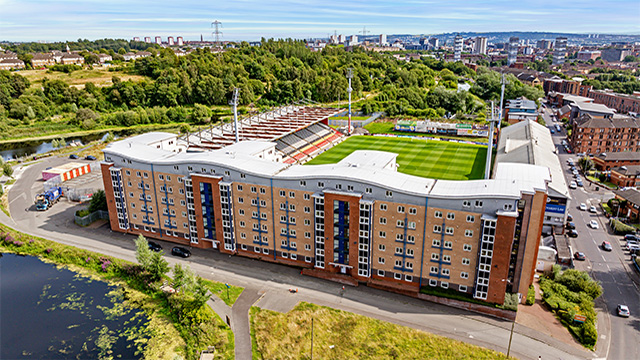Commercial real estate set to fall short of 2030 decarbonisation target
Despite the implementation of Minimum Energy Efficiency Standards in 2023, the commercial real estate sector is set to miss its target to decarbonise the industry by 2030 – by at least a decade.
The MEES standards prohibit the leasing of properties with an EPC rating below E, yet more than 13,000 rental properties nonetheless hold ratings of F or G, according to research from property data company Search Acumen.
The company’s research found that, at its current pace, the decarbonisation of the sector to meet the MEES standards will take just over 15 years.
Despite the implementation of Minimum Energy Efficiency Standards in 2023, the commercial real estate sector is set to miss its target to decarbonise the industry by 2030 – by at least a decade.
The MEES standards prohibit the leasing of properties with an EPC rating below E, yet more than 13,000 rental properties nonetheless hold ratings of F or G, according to research from property data company Search Acumen.
The company’s research found that, at its current pace, the decarbonisation of the sector to meet the MEES standards will take just over 15 years.
The office sector was highlighted as the worst performing by this metric, with just 15% of buildings complying with the required rating of B or above and an estimated 5,761 buildings rated F or G.
Andrew Lloyd, managing director at Search Acumen, said: “Real estate owners and investors have faced a barrage of economic and financial challenges over recent years and, inevitably, this will have had some impact on the appetite for investment in costly retrofits.
He added: “This is most notable in the office sector, where appetite for investment in energy efficiency upgrades has been made more complex by declining occupier demand for larger floorplates.”
Retail, on the other hand, was the best with a 0.5% rate of non-compliant EPC ratings, while hospitality had the highest rate of top-band registrations at nearly 31% – up by 4% since April last year.
Education also saw improvements on last year, with just 1.8% of buildings rated F or G and just under a fifth rated A*, A or B, which was a 7% rise from last year.
“Since the pandemic, how we live, work and shop has changed impacting the investment in asset management initiatives. Despite these dynamics, the mission to decarbonise needs to remain a constant, both to lower the environmental impact of the built environment, but also to ensure commercial sustainability for real estate portfolios. 2030 really isn’t that far away,” said Lloyd.
The research showed the rate of improvement slowed over the past year, with upgrades to A*-B EPC bands down by 20% compared with 2024, while non-compliant registrations dropped by roughly 7%. Another 425 properties still registered for lower EPC ratings, mainly in the office sector.
As a result, the research extended the margin by which the commercial real estate sector was set to miss the target by – from eight years in May 2024 to at least 10 now.
Image © Adobe Stock











